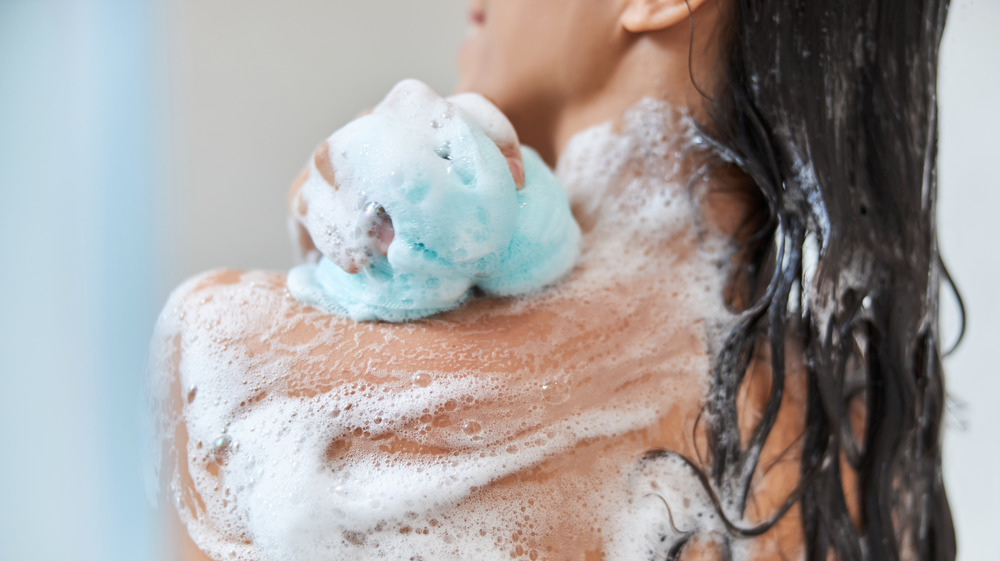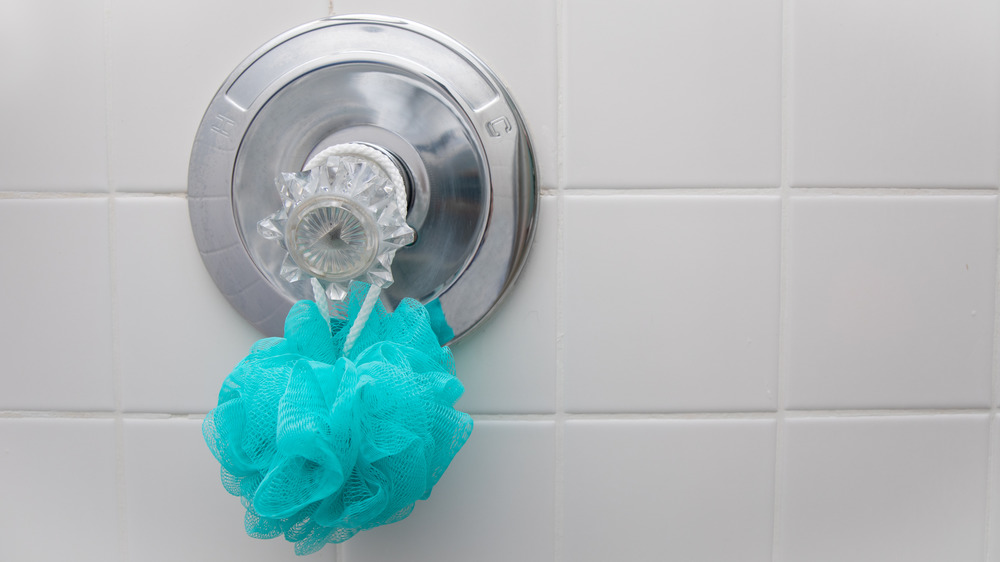Never Share A Loofah With Someone Else. Here's Why
Loofahs are often used as a fun and colorful bath accessory to lather and thoroughly exfoliate our skin. They're thought to be more effective than a bar of soap or washcloth. When it comes to cleanliness, however, washcloths win out as loofahs can serve as a cozy home for potentially harmful bacteria (via The Healthy). Dermatologist, Dr. Adarsh Vijay Mudgil, M.D., explains, "If you're going to choose one, wash cloths are much better than loofahs, provided you only use the cloth one time before washing it. Both can harbor bacteria, but loofahs are much more prone to doing so given all their 'nooks and crannies" (via Oprah Magazine).
The small grooves and spaces within a loofah serve as a prime location for bacteria to accumulate, especially when continuously kept in the damp environment of a shower. If you're sharing a loofah with other people in your household, it increases the chances of transferring mold, mildew, and other germs between you and others. Studies conducted found particular types of bacteria are prone to being spread through loofahs such as E. coli and Pseudomonas aeruginosa. According to the Centers for Disease Control and Prevention (CDC), Pseudomonas aeruginosa is an infection-causing bacteria which can affect the lungs or blood and is often difficult to treat.
Loofahs can carry potentially harmful bacteria that can pass to others if shared
In addition, the actual scrubbing of the loofah may not offer as many skin benefits as previously thought. While exfoliation does offer health benefits such as increased circulation, a loofah may not be the best way to go about achieving this (via HuffPost). Though a loofah is effective in removing dead skin cells, experts caution that the next time you shower, that dead skin you spent time removing is getting scrubbed right back onto you.
In order to help keep your shower accessory clean and sanitary, experts suggest discarding your old loofah and replacing it with a fresh one every three or four weeks. Additionally, keeping it in a dry environment where it's not subject to additional moisture in the air will help reduce the risk of bacterial growth. Lastly, be sure to routinely sanitize your loofah by saturating it in a cleaning solution with a small amount of bleach in the mixture. Doing so will help safeguard your health and hygiene during bath time.


